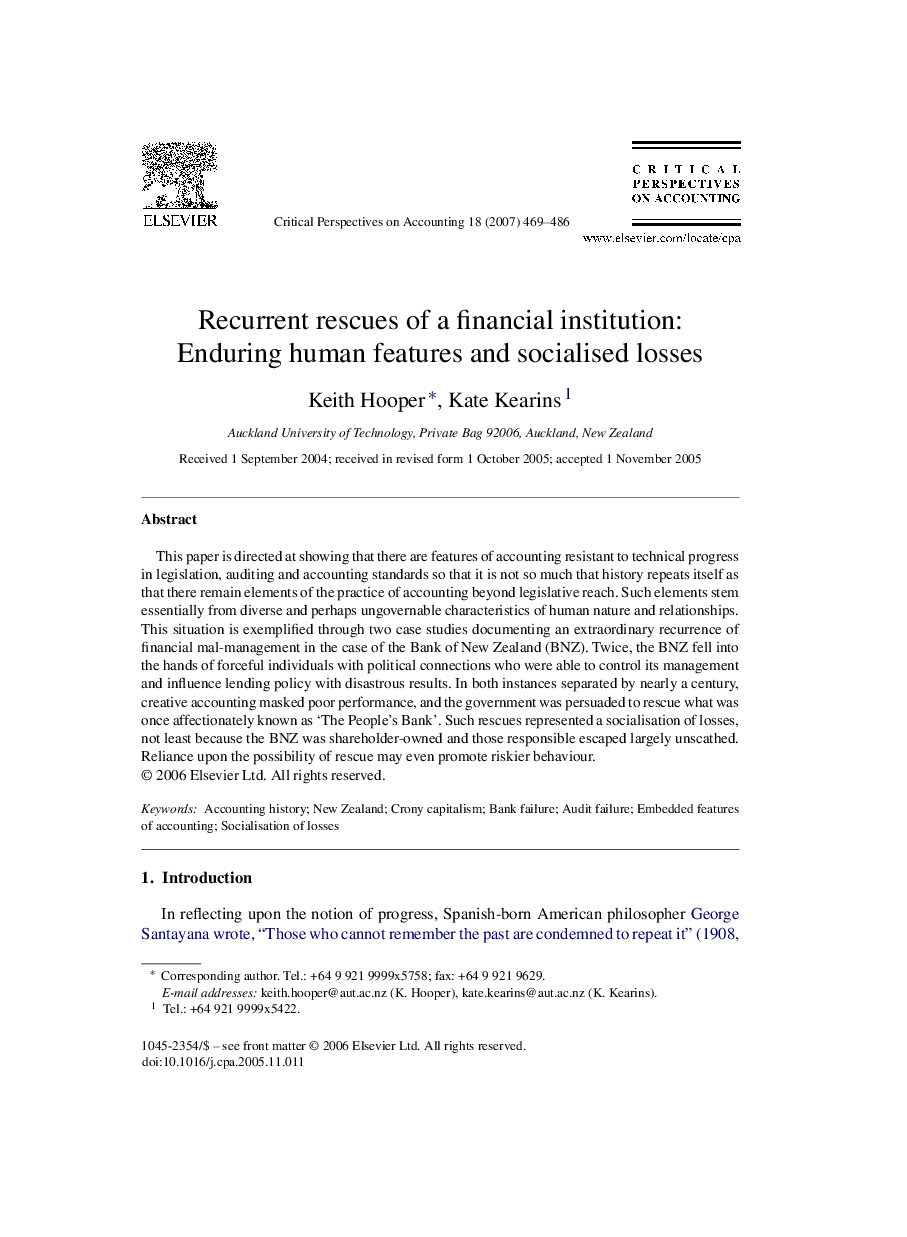| Article ID | Journal | Published Year | Pages | File Type |
|---|---|---|---|---|
| 1001120 | Critical Perspectives on Accounting | 2007 | 18 Pages |
This paper is directed at showing that there are features of accounting resistant to technical progress in legislation, auditing and accounting standards so that it is not so much that history repeats itself as that there remain elements of the practice of accounting beyond legislative reach. Such elements stem essentially from diverse and perhaps ungovernable characteristics of human nature and relationships. This situation is exemplified through two case studies documenting an extraordinary recurrence of financial mal-management in the case of the Bank of New Zealand (BNZ). Twice, the BNZ fell into the hands of forceful individuals with political connections who were able to control its management and influence lending policy with disastrous results. In both instances separated by nearly a century, creative accounting masked poor performance, and the government was persuaded to rescue what was once affectionately known as ‘The People's Bank’. Such rescues represented a socialisation of losses, not least because the BNZ was shareholder-owned and those responsible escaped largely unscathed. Reliance upon the possibility of rescue may even promote riskier behaviour.
